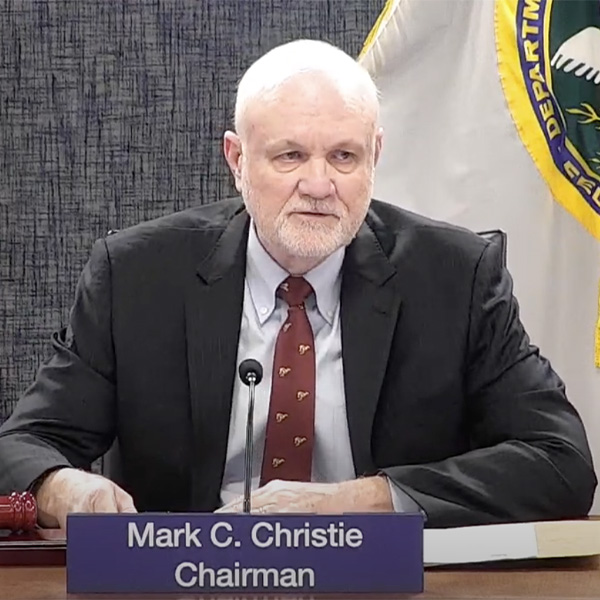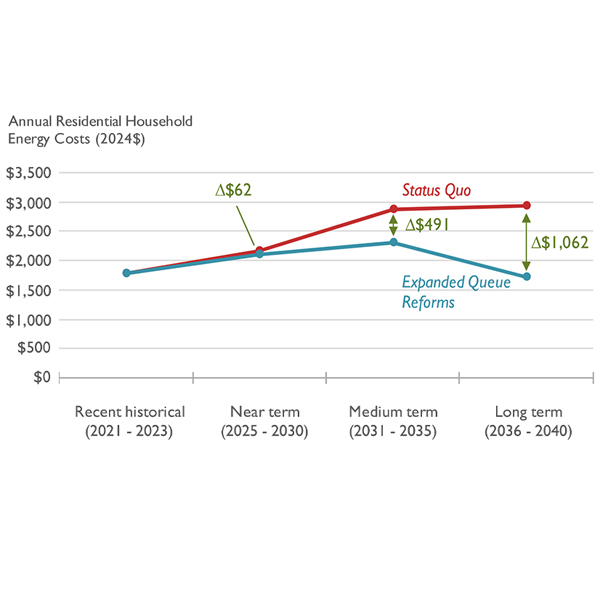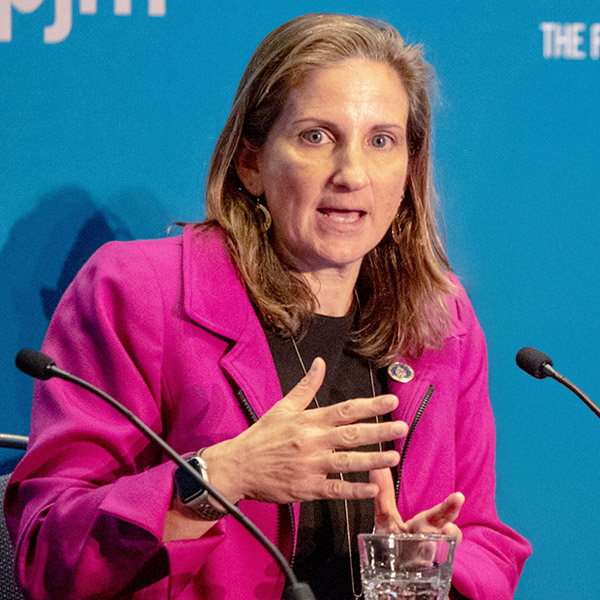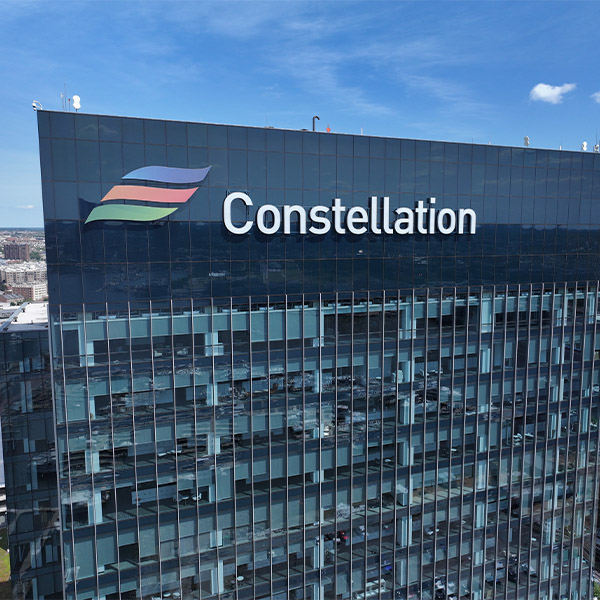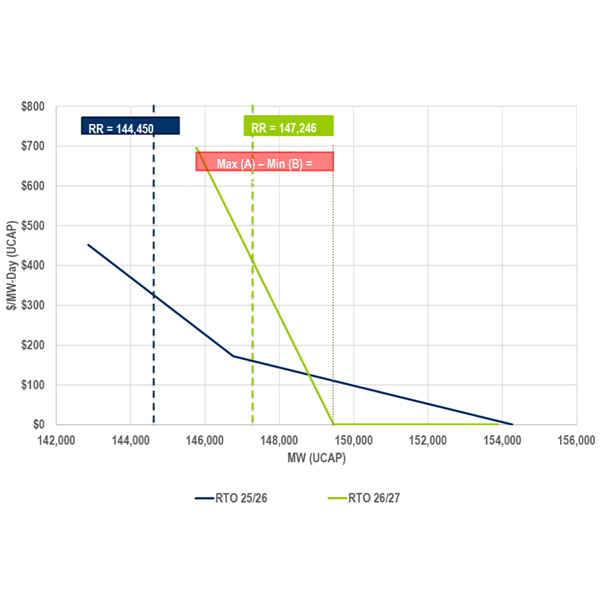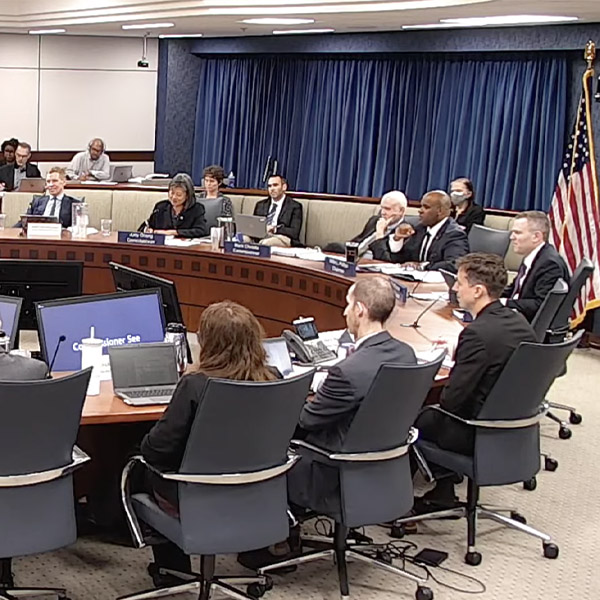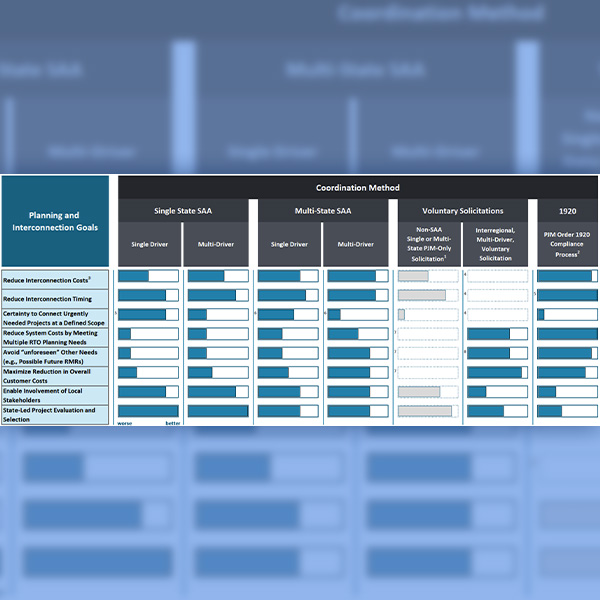Maryland
FERC Chair Mark Christie criticized PJM for continuing to consider proceeding with Transource Energy’s Independence Energy Connection transmission project years after Pennsylvania regulators denied it a certificate of public convenience and need.
The Evergreen Collaborative and consultant Synapse Energy Economics of Massachusetts released a report that predicts a 60% hike in residential bills will be reached by 2036 to 2040 if PJM continues on its current path.
The Maryland Office of People’s Counsel filed a complaint alleging the rules used in PJM's 2025/26 Base Residual Auction would require consumers to pay twice for capacity provided by generators operating on RMR agreements.
Several state legislatures within the PJM footprint are considering bills that would mandate public utilities report every vote they cast at the RTO, with some also requiring a description of how those actions would benefit ratepayers.
FERC received several protests to Constellation's proposed purchase of Calpine, with PJM's Monitor arguing the companies need to make additional commitments to preserve competition in the RTO.
PJM is in discussions with Pennsylvania Gov. Josh Shapiro to work toward a resolution on his complaint to FERC asking it to lower the price cap of the RTO’s capacity market.
The Maryland Piedmont Reliability Project is a proposed 67-mile, 500-kV transmission line that could be vital to grid reliability in the state but has already sparked opposition.
Several state consumer advocates filed a complaint at FERC alleging PJM’s capacity market is failing to mitigate market power, overestimating future load and producing high clearing prices that generation owners cannot act on.
A common refrain at FERC’s technical conference on the co-location of data centers was that the issue is just part the broader problem of resource adequacy.
FERC Order 1920 eventually may provide a structure for long-term, interregional transmission planning, but its anticipated yearslong implementation could mean states will have to lead in planning nearer-term transmission needs, according to a report from the American Council on Renewable Energy and The Brattle Group.
Want more? Advanced Search
